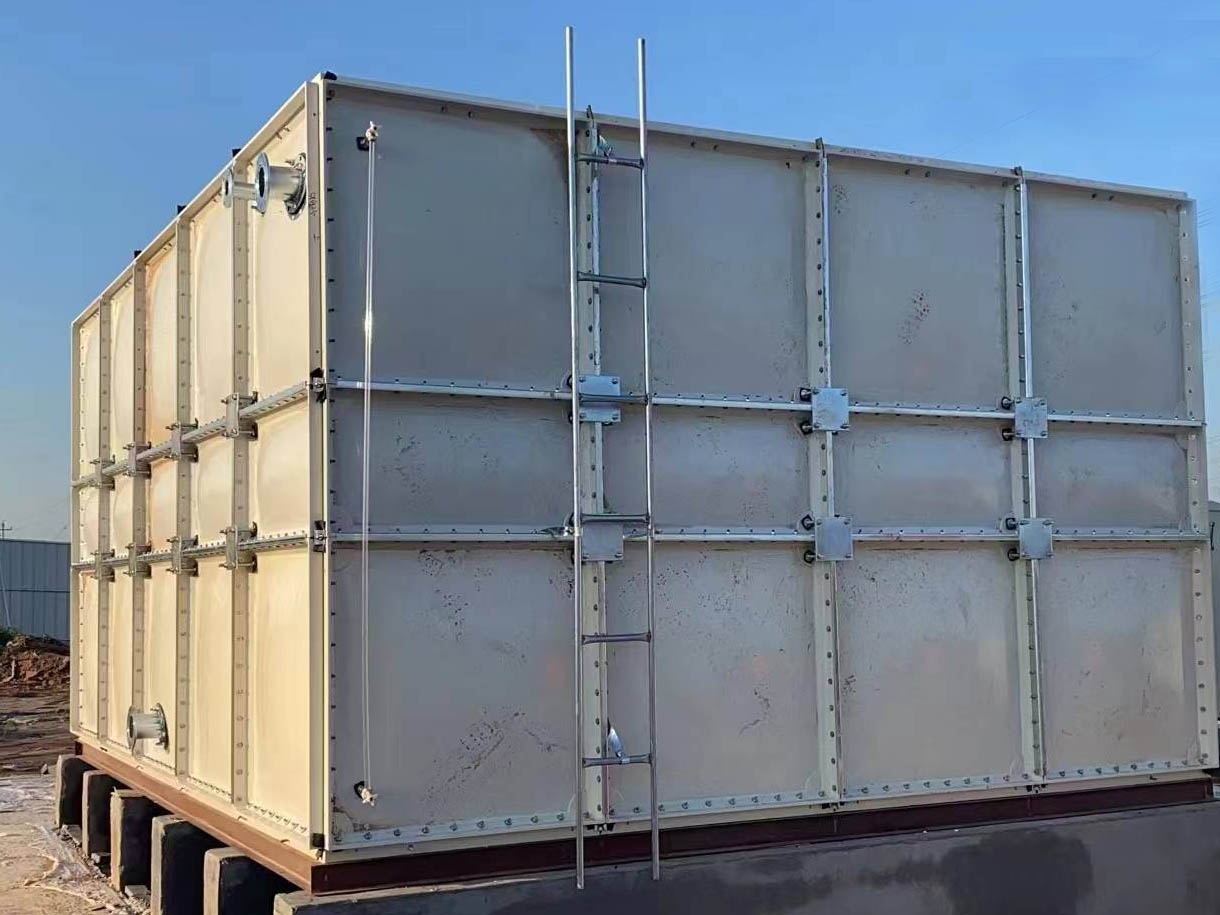One of the most significant advantages of fibreglass tanks is their superior resistance to corrosion. Unlike traditional metal tanks, fibreglass does not rust or corrode when exposed to harsh chemicals or environments, making it ideal for storing aggressive substances and operating in marine or coastal areas.
Fibreglass tanks are known for their high durability and long service life. The material is resistant to wear and tear, impact, and environmental stressors such as UV radiation. This durability ensures that fibreglass tanks can remain functional and safe over decades, often outlasting their metal counterparts.
Compared to steel and concrete tanks, fibreglass tanks are significantly lighter. This reduced weight facilitates easier transportation, handling, and installation. The lighter weight also reduces the load on supporting structures and foundations, potentially lowering construction costs.
Fibreglass tanks offer considerable design flexibility. They can be molded into a wide range of shapes and sizes to meet specific storage requirements. This adaptability allows for custom designs that can fit into confined spaces or integrate seamlessly with existing systems.
The insulating properties of fibreglass make these tanks suitable for applications where temperature control is crucial. Fibreglass tanks can maintain the temperature of their contents better than metal tanks, reducing the need for additional insulation and associated energy costs.

Fibreglass tanks can be engineered to handle a wide range of chemicals, including acids, bases, and solvents. By selecting appropriate resins, manufacturers can produce tanks that are compatible with specific chemicals, ensuring safety and integrity in storage and processing operations.
Due to their resistance to corrosion and environmental factors, fibreglass tanks require minimal maintenance compared to metal or concrete tanks. This reduced need for upkeep translates to lower long-term operational costs.
While fibreglass tanks offer long-term cost savings, their initial purchase price can be higher than that of tanks made from other materials like steel or polyethylene. This higher upfront investment may be a barrier for some businesses, particularly those with limited budgets.
Although fibreglass is generally durable, it can be more susceptible to damage from severe impacts compared to steel tanks. Sharp or heavy objects can cause cracks or punctures, compromising the tank's integrity. Special care must be taken during transportation and installation to prevent such damage.
Fibreglass tanks have a narrower temperature range compared to some other materials. Extreme temperatures, particularly high heat, can cause the fibreglass to weaken or degrade over time. Applications involving very high temperatures may require alternative materials.
Over extended periods, the resin in fibreglass tanks can degrade, particularly if exposed to UV light or certain chemicals. This degradation can lead to reduced structural integrity and chemical resistance, necessitating repairs or replacements.
Repairing a fibreglass tank can be more complex than repairing a metal or plastic tank. Specialized skills and materials are required to properly fix cracks or damage, which can be time-consuming and costly. In some cases, extensive damage may render a tank beyond repair, necessitating a complete replacement.
The production and disposal of fibreglass tanks raise environmental concerns. The manufacturing process involves the use of chemicals and resins that can be harmful to the environment. Additionally, fibreglass is not as easily recyclable as some other materials, which can pose challenges for end-of-life disposal.
Fibreglass tanks offer numerous advantages, including excellent corrosion resistance, durability, lightweight construction, and design flexibility, making them suitable for a wide range of applications. However, potential users must also consider the disadvantages such as higher initial costs, susceptibility to impact damage, limited temperature range, potential resin degradation, complex repairs, and environmental concerns.
When deciding whether fibreglass tanks are the right choice, it's essential to weigh these pros and cons carefully against the specific needs and conditions of your application. For many industries, the benefits of fibreglass tanks outweigh the drawbacks, particularly when long-term performance and maintenance costs are taken into account.
Experience the brand Trusted by Renowned Companies across the GLOBE.

Pipeco stands at the forefront of the market, recognized as a premier manufacturer, supplier, and exporter specializing in top-tier GRP water tanks, stainless steel water tanks, and SMC manhole covers, FRP Water Tank, Fiberglass Tank, SMC Water Tank committed to delivering unparalleled quality and excellence.